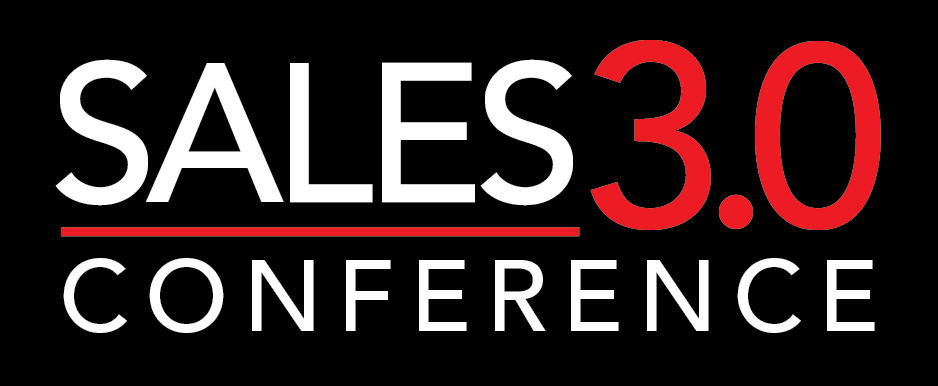Technology took off for sales around 2007 when we first started organizing conferences for B2B sales leaders. Many early-era Sales 3.0 exhibitors, like Marketo or ZoomInfo, were new on the scene and have since become standard-issue platforms used every day by a multitude of sales and marketing teams.
We still talk a lot about technology for sales at each Sales 3.0 Conference. That’s because many tech tools are still emerging to help teams improve the core aspects of selling, including:
- prospecting,
- generating and nurturing leads,
- filling sales pipelines, and
- moving opportunities to a faster close.
The Best Sales Technology for Your Team
For sales or marketing leaders making purchase decisions about tech tools, it’s important to explore all avenues. If you invest in a tool too soon, or without a strategic plan, your investment could potentially create bigger problems and drain your budget.
Not good.
This is why sales leaders network with their peers to find out how other sales teams are tackling similar challenges. As technology offerings expand, however, cutting through the noise becomes a challenge in and of itself.
Looking forward to the new decade, what areas of technology are growing in importance? What should be on your radar?
Read below to find out the biggest tech movements for 2020 and how they’re already making a big impact for sales and marketing.
Trend 1: Digital Transformation
Digital transformation is the broadest trend to be aware of. In fact, it can be difficult to define because of the many ways it can be applied to different industries. But I wanted to mention it up front because this is a trend with staying power.
There is no one-size-fits-all for digital transformations; it will likely look very different from one company to the next. However, the typical strategy consists of the implementation of advanced technologies, combined with a calculated reworking of technology already in place.
Digital transformation isn’t a static solution; it’s an integration process that advances any aspect your company needs, with consistent updates and improvements.
Moving into the new decade, there are sure to be a number of new tech trends and advancements that will streamline digital transformation across all industries. That includes sales and marketing. In his blog post about the benefits of digital transformation for sales and marketing, Steve Bookbinder says a huge benefit of digital transformation is improved collaboration:
“Digital technology makes more information available so you can start to see patterns and understand why certain techniques are more effective. Open communication and access to this information fosters trust and helps make the work environment less hierarchical and siloed. Developing a shared mindset helps eliminate an ‘us vs. them’ mentality and improves teamwork.”
Trend 2: Hyperautomation
Hyperautomation is about augmenting processes and tasks previously performed solely by humans. Gartner cited it as one of the top strategic technology trends for 2020.
Hyperautomation involves combining machine learning (ML) technology with structured software and automation capabilities to accelerate digital transformation in an organization.
This tech trend begins with robotic process automation (RPA) software, which has been a driving force of digital transformation in past years. RPA capabilities are further enhanced by the implementation of ML, process mining, analytics, and other structured tools.
The idea behind hyperautomation is to allow your salespeople to quickly and easily comprehend the latest business insights, which should lead to enhanced sales performance. Rather than getting bogged down in administrative work, salespeople will be able to sell, collaborate, prospect, and serve customers at optimal levels.
Trend 3: Artificial Intelligence
Our sister brand, Selling Power, published a number of blog posts and articles in the past few years about the rise of AI for sales. (In fact, you can check out the list of Top AI Solutions for Sales from 2019.)
Artificial intelligence (AI) has been an evolving technology for at least the past decade. In fact, some sales practitioners, notably Chris Beall from ConnectandSell, say the first usage of AI and robots for sales dates back to 1968. With continuing advancements, AI will likely trend throughout the coming decade as well.
AI can be manipulated in a variety of ways to execute essential tasks within an organization. The ability to customize and advance AI to fit a company’s specific needs makes it a flexible fit for almost any company.
As a tool, AI can be applied to augment human decision making across a broad set of use cases. This, incidentally, creates opportunities to enable hyperautomation and leverage autonomous things to deliver digital transformation – without human intervention or bias. This technology will continue to trend as a staple of the digital transformation process throughout 2020.
Trend 4: Multi-Cloud Computing
Cloud computing is another technology that’s old but new (and worth paying attention to).
In the past few years, we’ve heard growing buzz about multi-cloud computing as a trend every enterprise should consider for digital transformation. According to Gartner, 17 percent of the total market revenue for IT has shifted to the cloud; analysts project this will increase to approximately 28 percent by 2021.
Multi-cloud computing is a way to use the cloud without the restriction or commitment of storage being held by an individual vendor. This gives enterprise companies the flexibility to use (or stop using) a cloud whenever necessary.
Without single-vendor reliance, companies have the freedom to create more opportunities moving into the future. This freedom casts multi-cloud computing as a desirable asset that companies should consider adopting.
Trend 5: G Wireless Network
A new technology on track to expand in 2020 is 5G wireless connection. This trend will be a game changer for digital transformation and companies all around the globe.
That’s because 5G will enable wireless connection that’s fast enough to support cloud access and remote work.
5G provides companies with the ability to use cellular and wireless networks from any location, rather than just in-house. The ability to work in real time both remotely and while traveling presents organizations with the opportunity to stay up to date on assignments and be as productive as possible. 5G will impact lots of industries critical for salespeople (especially the 500 largest sales forces in the U.S.), including manufacturing, energy, financial services, transportation, healthcare, and more.
Join Us at a Sales 3.0 Conference
To stay on top of these kind of tech trends and network with other B2B sales leaders, consider joining us for one of our three Sales 3.0 Conferences this year.

Lisa Gschwandtner is editorial director at Selling Power. She has written about sales and selling for more than 15 years and interviewed hundreds of B2B sales executives, industry leaders, CEOs, and experts.




